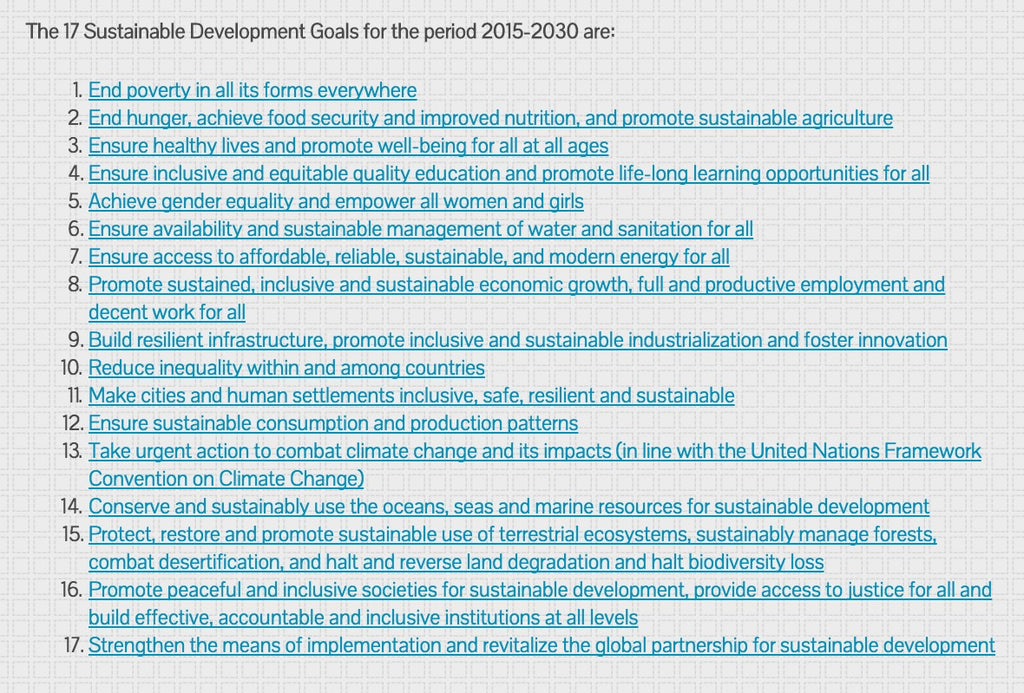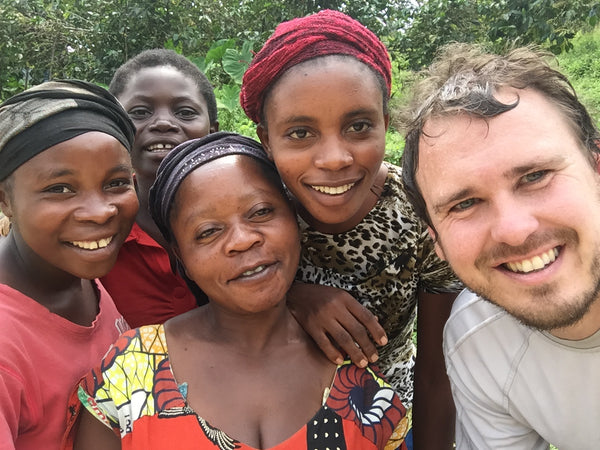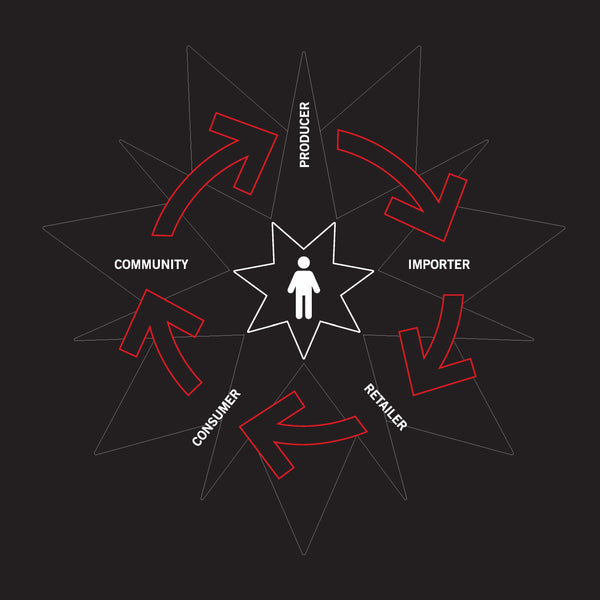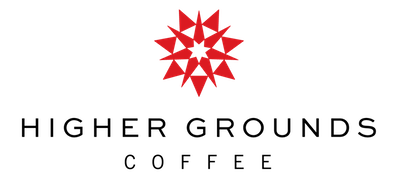
Coffee could change the world. But first, we need a disruptive innovation to evolve our trading system. This post is the third of four installments diving deep into the issue of true sustainability in the coffee industry, written by HG cofounder Chris Treter. [ Part 1: Inequality Rules the World | Part 2: Price Matters a lot, and it's just a Piece of the Puzzle | Part 4: We Need to Collaborate Towards Sustainability and Development at the Same Time ]
//
True sustainability puts people first
In 2015, all 191 UN member-states signed on to The 2030 Sustainable Development Goals, making their central objective “eradicating poverty in all its forms and dimensions, including extreme poverty, [which] is the greatest global challenge and an indispensable requirement for sustainable development.” The goals and actions required [...] balance the three dimensions of sustainable development: the economic, social and environmental.”
As far back as 2010, in a historic shift in international strategy, the United States recognized development as “vital to U.S. national security and is a strategic, economic, and moral imperative” for our country. Development is now a core strategic pillar, together with diplomacy and defense, to “mutually reinforce and complement one another in an integrated comprehensive approach to national security.”

(Above: visiting with farmers at the Muungano Cooperative, DRC)
Political language aside, all this is good news for coffee farmers, but much work still needs to be done by those of us who call them our “partners” on the receiving end of the supply chain.
A circular economic model is the vehicle required for change within the specialty coffee industry. When we operate along a continuous circle across our supply chain, we can build wealth and expertise alongside coffee farmers, rather than in spite of them.

Current leading trends in specialty coffee primarily tie company resources to increasing coffee farm production and quality through capacity building and agricultural inputs. While production and quality investments at coffee origin are necessary components to any "sustainable" trading model in the coffee industry, increasing agricultural support (under the guise of combating climate change) fall grossly short from anything even close to what our coffee-growing friends would call "sustainable."
Following the guidance of the UN Sustainable Development Goals--combating inequality by investing in coffee farming regions down to the household level--is crucial. In the years to come, caring not only for the plants and their optimal levels of production but also investing in the places and people who grow and process the coffee you love is simply the best business practice to secure long-term supply. We live in a world at an unprecedented historic moment with rapidly increasing demand for specialty coffee on a planet quickly changing due to climate change. By 2050 we will have lost half of the land currently suitable for Arabica coffee production. That's enough to make many of us sit up straight and listen.
Imagine the moment when Zawadi completes the Gender Action Learning Program funded through supply chain partners. She’ll have financial and literacy training, providing her the tools, and funds via microloans, to better educate herself on increasing quality and production and make decisions that will create supplemental income to clothe and feed her children. She could even buy herself a new roof.
Today, from my smartphone, I can hit send on my Paypal app and instantly transfer $50 to Zawadi just in time to pay school fees and buy uniforms for her two children. A report from the UK’s Overseas Development Institute finds that transferring money directly to an impoverished coffee farmer has increased gender equality, food security, and education rates. Ending poverty may be as simple as putting cash into the hands of people who need it most along the supply chain.
Digital Disruption is our Fuel.
Real time adoption of rapid advances in technology means we can empower and educate those at all points in the supply chain. By 2020, there will be more than 34 billion internet-connected devices used on earth. That's more than four devices for every human. I’m sure I’m not alone in reporting that I use my iPad and iPhone more than I use any other tools I own.
I can now send a Whatsapp text directly to Zawadi (whom you met in the first post in this series) to obtain direct updates and better assist her efforts in obtaining a new roof for her home. Free Whatsapp group texts between her co-op washing station manager, international experts, and the buyer sourcing all of her community’s coffee are facilitating real time conversations to implement leading edge processing innovations. As a result, the buyer is committing to paying Zawadi a dollar more per pound than the specialty market price she got last year. These conversations can exist in threads, sharing best practices about pest control, soil treatment, collection, fermentation, and drying method issues to enhance the end quality of the coffee.
The buyer is receiving ongoing photos of the harvest and proof of the impact their community investment in the GALS micro-loan program is providing, offering game-changing content for their brand, demonstrating their relationship, commitment to quality, and community values.
Millennials--a driving force among current consumers with significant economic impact potential--report a desire to know more about how their foods are produced, along with interest in brands that evoke authentic sustainable brand values. They also are some of coffee’s biggest fans. The opportunity has never been greater to capitalize on the opportunity this demographic presents and significantly shift the way we do business in the world of specialty coffee.